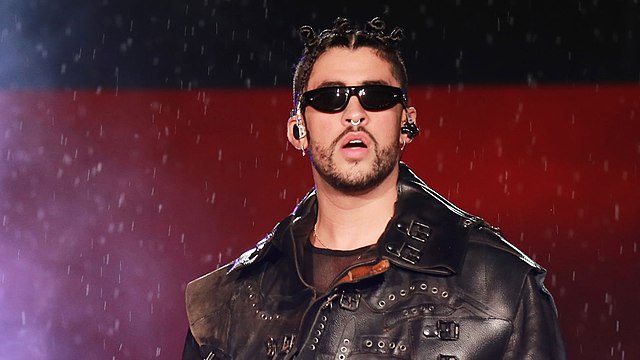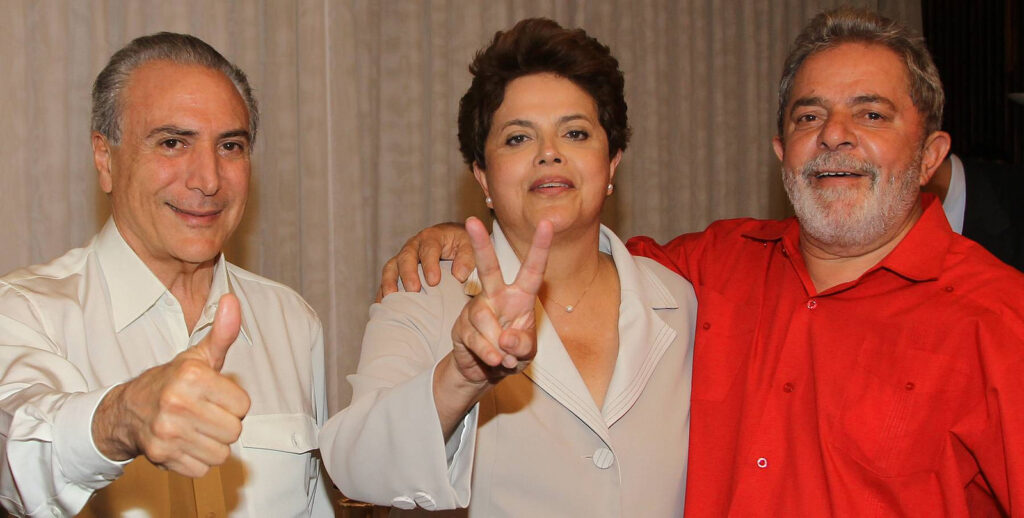Twenty-seven-year-old Puerto Rican singer, Bad Bunny, born Benito Antonio Martínez Ocasio, has taken the music industry by storm.
Bad Bunny began his career in 2016 in Puerto Rico by posting his rap songs on SoundCloud. Soon, he became an overnight sensation. As a rising star in 2017, he appeared on tracks with Cardi B and Drake, and with the release of his first album later that year, X 100pre, the rest is history.
Bad Bunny became the most streamed artist on Spotify in 2020, 2021 and 2022. His 2022 World’s Hottest Tour concerts ranked number two, three and six in the United States’ highest-grossing concerts of all time, becoming the highest-grossing tour by a Latin artist in history. His most recent work, Un Verano Sin Ti, was the first Spanish-language album to be nominated for Album of the Year at the 2023 Grammy Awards. Bad Bunny reached this level of success and popularity by using his music to challenge the social norms embedded in the Latino community while addressing political issues that harm his home of Puerto Rico.
Martínez has a track record of social and cultural activism challenging toxic masculinity within Latino culture. In early 2020, Martínez appeared on The Tonight Show Starring Jimmy Fallon to promote his album YHLQMDLG. During his performance, he wore a skirt, pink blazer and a t-shirt in Spanish saying, “They killed Alexa, not a man in a skirt,” bringing attention to Alexa Negrón Luciano, a homeless transgender woman who was shot and killed in Puerto Rico for using a women’s bathroom. His statement was impactful in the Latino community by confronting the issue of transphobia and toxic masculinity in Latin America to over one million live viewers and addressing the misgendering of Negrón Luciano in Spanish media reporting.
“I am going to do what is within my reach to [work]against [violence against women]. … My message shouldn’t be a feminist message. It’s a universal message,” Bad Bunny said in an interview months after the performance, acknowledging his role in the LGBTQ+ community and addressing gender-based violence in Puerto Rico.
Martínez also includes feminist songs like “Solo de Mi,” bringing awareness of domestic abuse, centering the female perspective and reclaiming her power. He performs in drag in his “Yo Perreo Sola” music video, which stands against sexual harassment and abuse of women.
In addition to his support for gender and sexuality rights, Martínez’s proud Puerto Rican roots leave traces in his music to highlight the island’s current condition. In 2017, Hurricane Maria devastated Puerto Rico, creating approximately $94 billion in damages and killing 3,000 people, marking its standing as the deadliest natural disaster in the United States in 100 years.
A year later, Martínez dedicated his song ”Estamos Bien” (We’re Good) off his debut album to the victims of the hurricane, becoming the anthem for locals as a form of solidarity and perseverance. The song marks a response to the underfunding and neglect from the Trump administration and the Federal Emergency Management Agency that contributed to Puerto Ricans suffering under blackouts, lack of clean water and complications of food distribution.
He dedicated his 2018 television debut performance on The Tonight Show with Jimmy Fallon to the victims of Hurricane Maria as he opened his act with a video of the storm’s high winds and destruction. Transitioning to English, he reminded the American audience saying, “A year later, many are still without electricity in their homes. More than 3,000 people died, and Trump is still in denial.” “Estamos Bien” advocates for Puerto Ricans gathering together to fix their own community, united in their goal of survival despite the federal government’s abandonment.
More recently, in September 2022, Martínez used his artistry and platform to provide Puerto Rican locals a voice on the issues they face at the behest of the U.S. government. As a product of Puerto Rican public housing, Martínez champions himself as a man of the people as he captures fans’ attention by addressing current issues locals face. His music video for his song from his 2022 Un Verano Sin Ti album, “El Apagón” (“The Blackout”) shifts into a documentary explaining the harmful effects of federal legislation.
For example, at the time of the video’s release, Act 20 and 22, tax incentives for American citizens relocating to the island, contribute to the gentrification of Puerto Rico, displacing locals and treating them as second-class citizens. The gentrification of the island is an example of present-day colonialism.
“El Apagón” begins as a typical music video with drone footage of Puerto Rico and dancing residents, but is abruptly interrupted with video of a power grid explosion and journalist Bianca Graulau explaining the crucial impact the recurring blowouts caused by a private company, Luma Energy, that affects locals. Once the four-minute song concludes, the video transitions to
an 18-minute documentary called “Aquí Vive Gente” (“People Live Here”), with Graulau reporting socioeconomic and political issues and interviewing the locals of the low-income neighborhood of Tierra de Puerta. Along with locals being priced out and forced out of their homes by outside real estate investors, the video includes protests against the privatization of public beaches that breaks Puerto Rican law.
The growth of the island’s popularity to investors comes after the passing of Acts 20 and 22, which supply incentives for wealthy U.S. citizens from outside of Puerto Rico to move to the island and reduce their income tax to 0-4%. The laws encouraged investors to transform low-income neighborhoods with public housing into luxury housing complexes and vacation rentals. The influx of mainland Americans also includes influencers and cryptocurrency tycoons, like YouTube content creator Logan Paul, who in 2021 admitted on his podcast that the tax breaks were the primary reason for his relocation to the island.
Following the transition of Spanish singing artists breaking the English-dominated American charts, Bad Bunny is an important figure in the Latino community who gives them a voice in the music industry. With Latino artists like Marc Anthony, Ricky Martin and Shakira shifting to English for the mass-American market who crave success in the charts, Martínez adamantly refuses to release music in English, rejecting assimilation. His success demonstrates that Latino artists can achieve success without cultural erasure, retain their native Spanish language and amplify voices in their communities to advance social and political change.







